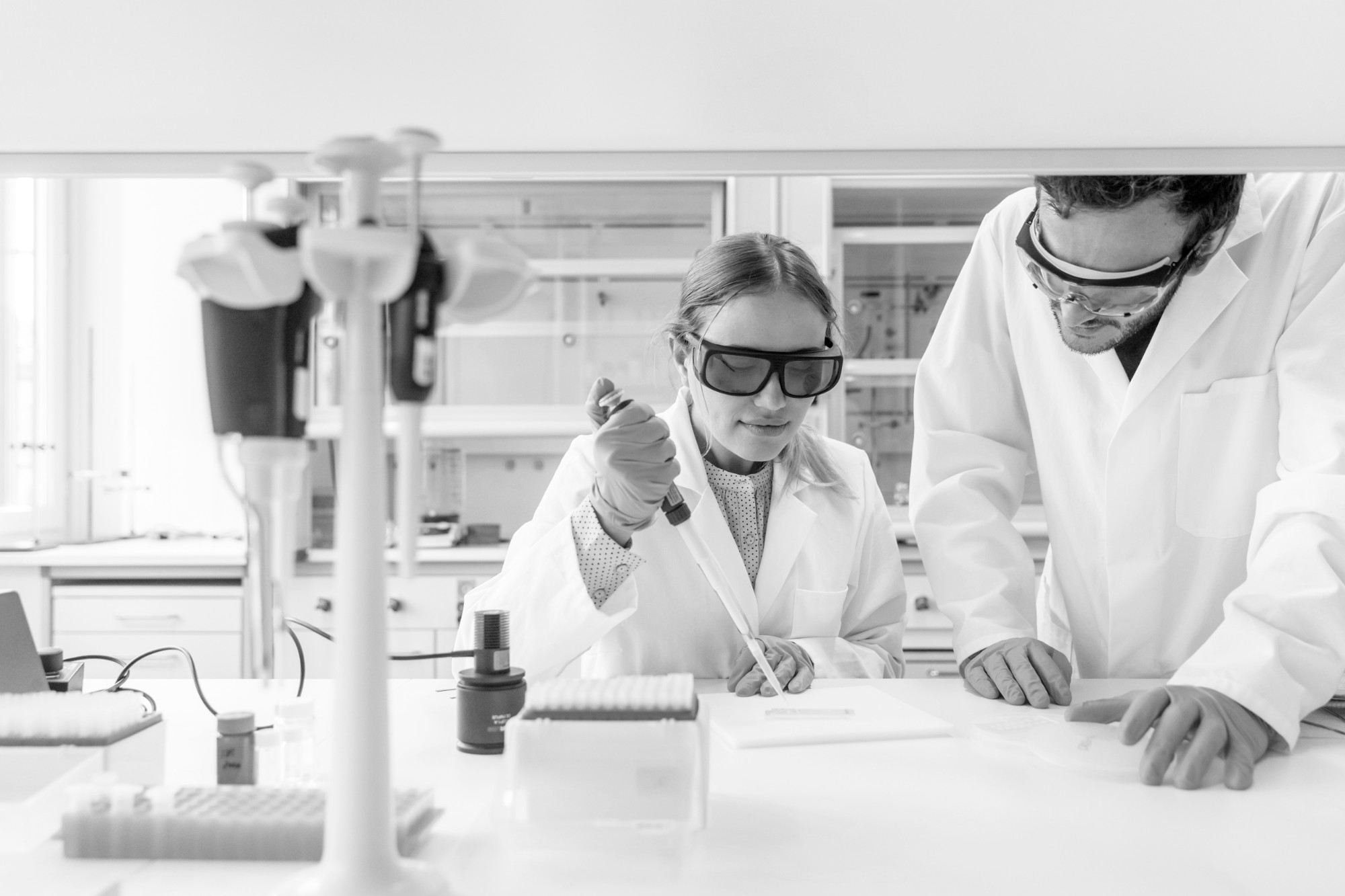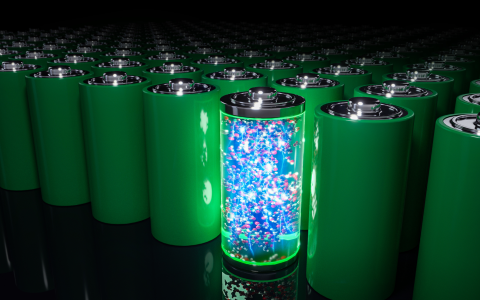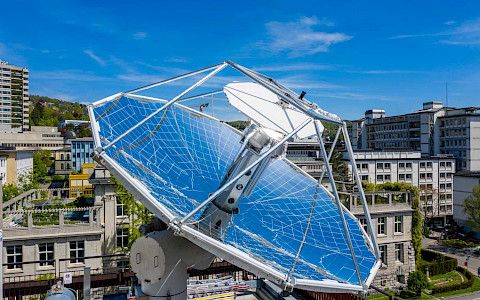
Catalysis is concerned with the acceleration of chemical reactions by lowering the respective activation energies to convert reactants into desired products; this is practically realized by using a catalyst. The ultimate goal of a catalyst is to maximize reactant conversion and product selectivity. At IEPE, we are mostly concerned with heterogeneous catalysis, i.e. the catalyst and the reactants/products exist in different phases whereby the catalyst is typically a solid, e.g. a metal or a metal oxide.
Most of the products that we encounter in our daily life have been produced via catalytic processes, e.g. plastics, gasoline, fertilizer or methanol. While catalysis is an established discipline dating back to the 19th century, it is becoming increasingly important in combating climate change and environmental pollution by e.g. enabling processes for the conversion of CO2 into fuels or chemicals, the destruction of pollutants (e.g. NOx, CO or volatile organic compounds), or the electrochemical splitting of water into hydrogen and oxygen.
IEPE covers different facets of catalysis spanning from fundamental research to practical applications:
-
Synthesis of novel catalytic materials
-
Structural characterization of catalysts under working conditions
-
Development of electrocatalytic processes to store electricity in the form of chemical bonds
-
Development of catalytic processes to convert CO2 into fuels and chemicals
-
Process modelling of catalytic conversion processes



